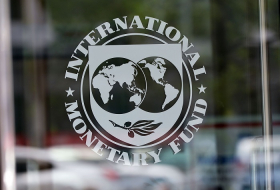The expert noted that International Energy Agency (IEA) had forecasted that oversupply would stay until 2017 even with such low prices as now.
“The only factor neutralizing the oversupply would be some big geopolitical tremor like hot war in Middle East, Caucasus or Eastern Europe. I hope such scenario will not become true,” he said.
Without such a scenario, in long term, market players will align to new situation, cut costs, evolve, and become effective again, in world of huge oil availability, according to Jakóbik.
“The key ability now is to achieve credit lines and cut costs,” he said.
Jakóbik believes that many oil producers have potential to reduce expenditures. Thus, American biggest companies are still able to sustain production, he said.
For example oilfield services giant Schlumberger announced that it wants to fire 10,000 people in 2016 to cut costs. Saudi Arabia, in turn, introduced ground-breaking budget cuts and wants to reform economy to push it away from oil addiction, according to the expert.
Russia can survive even cheaper oil, Jakóbik believes.
The main danger for Russia are not low oil prices but the Western sanctions, preventing new projects to come online, and that is why in time of cheap oil Russians are becoming more elastic in negotiations - on the level of companies and government, the expert said.
Jakóbik stressed that the least lucky are petro states with no room for budget maneuvers like Venezuela. He noted that cheap oil was one of the factors that made Venezuelan President Nicolás Maduro’s party to lose the parliamentary election in Dec. 2015.
“That is the place where oil market changes can imply political system changes,” the expert said.
Speaking about the US oil which poured into the world market after 40 years of export ban and provoked further over-saturation of the market and further decline in oil prices as a consequence, Jakóbik said, that the export ban was lifted because the US crude WTI became more expensive than Brent and the oil price inside US was hurting the production.
Another reason of such a decision is political, the expert noted. The Republican majority in the US Congress points out, that American hydrocarbons can be a good alternative for NATO allies in Europe, who are dependent on Russia which is the main supplier, according to Jakóbik.
“Poland, Lithuania and other customers looking forward for such opportunity,” Jakóbik said.
On Jan. 25 March futures for Brent oil hit $33.2 per barrel.
More about:
















































